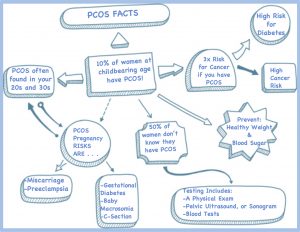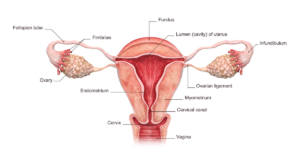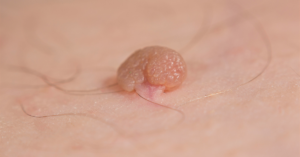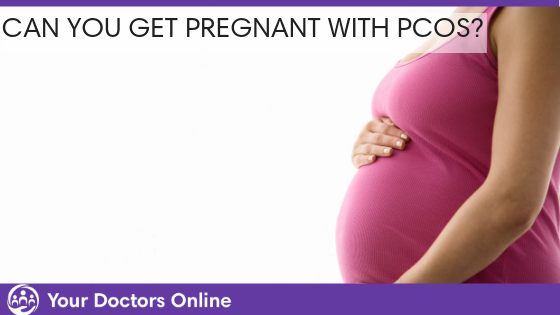Can you get pregnant if you have PCOS? Our doctors answer all your fertility questions about this hormone imbalance.
Many women do not realize they suffer from Polycystic Ovarian Syndrome (PCOS) until they try to conceive. They have been misdiagnosed or never addressed their symptoms until they are unable to become pregnant.
While it is generally accepted that approximately 10 % of the female population has PCOS, many experts believe that the actual number of women affected is actually much higher. In fact, study suggested that the number of women affected with PCOS is closer to 24% or almost one in four women.
What is Polycystic Ovarian Syndrome?

Polycystic Ovary Syndrome is the most common endocrine disorder among women in their childbearing years. PCOS can affect girls as young as 11 years old and continues until they reach menopause.
While experts are unsure about what causes PCOS symptoms to develop, it is well known what happens internally to create PCOS symptoms.
Hormone Imbalance
PCOS occurs when there is a hormone imbalance within a woman’s body. A female body will produce both male and female hormones. When a woman has PCOS, her body produces too many male hormones, called androgens. This imbalance disrupts the balance of hormones within the body necessary for normal menstrual cycles necessary for reproduction.
The ovaries are also responsible for producing estrogen and progesterone. These two regulate the menstrual cycle. The ovaries will also normally produce a small amount of androgen which is the male hormone. The production of excessive androgens affects the ovaries.
A woman’s ovaries are responsible for producing eggs. To become pregnant, an egg must be released by the ovaries, inseminated by a male partner and implanted into the uterine wall.
How PCOS Affects Your Ovaries

When the ovaries produce too much androgens the ovaries may only release eggs sporadically or possibly not at all. When an egg fails to release a woman is unable to become pregnant. Sporadic menstruation means that a pregnancy is possible, but it is difficult to determine when a woman will become fertile.
When there is a hormone imbalance the ovaries become filled with sacs which are filled with fluid. The term ‘poly-cycstic’ literally means ‘many cysts’. Yet the ovaries do not become filled with cysts, instead the sacs are actually follicles which contain immature eggs. The overdevelopment of follicles cause the eggs to never mature enough to trigger ovulation.
Without regular ovulation the levels of estrogen and progesterone are altered. Along with these hormones, follicle stimulating hormone as well as the luteinizing hormone (both which control ovulation) are affected.
How Do I know if I Have PCOS?

The only surefire way to determine if you have PCOS is to get a diagnosis from your doctor. However, tracking your symptoms is a good way to give your doctor the information they may require to make an informed diagnosis.
Women with PCOS may Experience the Following Symptoms:
Persistent adult acne: Many adult women suffer from acne but may not always associate this symptom with PCOS. If you are an adult woman whose struggling with adult acne that does not respond to traditional treatments it could be an indicator of PCOS.
Excessive body Hair: This can be a difficult symptom for women. This is because in many parts of the world women are expected to adhere to a beauty standard that depicts women as mostly hairless, except for their heads.
Unfortunately an excess of male hormones can cause excess body hair growth. This could mean stray hairs showing up on their faces, chest, or stomach. This symptom is called hirsutism. It happens in 70 percent of women with PCOS.
Hair Loss: Along with hair growth in undesired areas, PCOS can also cause hair loss around the hairline. An abundance of stray hair in the shower, on your pillow or in your hairbrush could be a sign of PCOS.

Obesity: Those who suffer from hormone imbalances may also have issues maintaining a healthy weight. This is because obesity is closely tied with hormone issues. The hormones in your body play a role in determining your appetite and metabolism. Between 40 and 80% of women who suffer from PCOS were reported to be overweight or obese.
These symptoms can adversely affect your self-esteem and body image. While there is no cure for PCOS, there are ways to treat the symptoms. Connect with a doctor to see what treatment options may be available for you.
Type 2 Diabetes and Insulin Resistance: Insulin resistance, which causes blood sugar levels to spike, has been linked to PCOS. Although the exact cause is not known, both insulin resistance and type 2 diabetes have been linked to PCOS. In fact, up to 70 % of women with PCOS also have insulin resistance.
Skin Discoloration and Skin Tags: This symptom is considered a secondary PCOS symptom since it is actually caused by insulin resistance, rather than PCOS itself. Acanthosis nigricans (skin discoloration) is caused by spikes in insulin resistance. The skin can become discolored in the folds appearing on the forehead, breast, neck, thighs and groin.

Skin tags are associated with PCOS. While skin tags are common and not dangerous on the body, they can be a signal of this serious medical condition.
Irregular Menstrual Cycles: Many women may experience irregular menstrual cycles or an absent period without associating this symptom with PCOS. A normal menstrual cycle is the body’s way of preparing itself for a possible pregnancy. Irregular cycles can make it harder to predict ovulation and fertile days for conception. There are many options to track your monthly cycle in order to predict your monthly menstruation as well as give important information if irregular menstrual cycles are occurring regularly.
Fertility Issues: If you and your partner have been trying to conceive and failing, PCOS could be to blame. Getting pregnant with PCOS is a challenge because PCOS causes ovulation to stop or become sporadic. This makes it difficult for couples to pinpoint fertility.
Many women have PCOS and don’t even know it. If you are concerned about your fertility, connect with a doctor.
Can You Get Pregnant on PCOS?

PCOS is actually the leading cause of infertility among women. While PCOS may be closely tied with a woman’s ability to become pregnant, it can also affect their overall health. It is essential for women to understand more about PCOS, even if they do not plan on becoming pregnant.
While PCOS is one of the leading causes of female infertility, it does not mean that you cannot conceive a child. Some women may be able to conceive naturally, but this is not common. Most women as need some extra help in order to become pregnant.
Related: Secondary fertility: Why it Happens & What you can do.
Lifestyle Changes

The good news is that there are many natural ways to reduce the symptoms of PCOS. A good example of this is losing weight. While weight loss may be more challenging for those with hormone imbalances, it can be enough to help kickstart your ovulation. Studies have shown a positive association between weight loss and an increase in positive fertility outcomes.
Fertility Drugs

In addition to natural approaches, fertility drugs can also be effective in conceiving with PCOS. Many women will still need fertility drugs in addition to lifestyle changes, such as losing weight or adapting a whole food diet. A whole food diet not only helps with losing weight, but can also have a positive effect on insulin resistance.
Clomid is one of the most commonly prescribed fertility drugs. It is often used to treat women with PCOS who hope to become pregnant. Clomid is used to trigger ovulation. Your doctor will be able to advise you in fertility drugs such as Clomid are a good option for you.
Off Label Use
Off label use drugs are prescription drugs created for other conditions, but can also trigger ovulation. Metformin is prescribed for diabetes and can help with insulin resistance. This drug may also be helpful for women with PCOS hoping to conceive as it can increase ovulation.
Letrozole is another medication that can be used for PCOS, although it was created for a different condition. Letrozole was created as a cancer medication, but studies have shown it is more effective than Clomid in increasing fertility.
Fertility Treatments

Some women may need fertility treatments in order to become pregnant with PCOS. Your doctor may suggest a combination of oral and injectable fertility drugs. These drugs are often taken in combination with a procedure such as intrauterine insemination (IUI) or in vitro fertilization (IVF).
IUI, IVF, IMF
IUI involves injecting specially washed sperm directly into the uterus with a catheter. The sperm may come from a male partner or a sperm donor.
IVF uses injectable fertility drugs to stimulate the ovaries to create several mature eggs. The eggs are removed from the ovaries prior to ovulation and inseminated outside of the body. Again the eggs can be inseminated with the sperm of a male partner or a sperm donor.

Once the eggs have had 3 to 5 days to split and grow they are inserted into the uterus with a procedure known as an embryo transfer.
There is a third option that women with PCOS may choose called in vitro maturation (IVM). This option does not use high doses of fertility drugs to encourage many mature eggs to develop. The immature eggs are removed and allowed to develop outside of the ovaries. Once they mature they are inseminated and inserted into the uterus.
Is There a Cure for PCOS?

There is no cure for this serious women’s health issue, but there are many ways to address the symptoms of PCOS, including infertility.
If you are struggling to conceive, check out the 10 common symptoms of PCOS to see if you could be one of the estimated 70 % of women who have PCOS but are undiagnosed.
PCOS does not only affect fertility. Even those who do not plan to become pregnant should chat with a doctor to see if their symptoms could indicate this hormonal imbalance.
PCOS can cause adverse effects on your overall health and may become the cause of health problems like heart disease, high blood pressure, and diabetes.
Potential PCOS Pregnancy Issues

PCOS pregnancy issues can be severe. They may even lead to serious health problems for you and your baby. Studies have found that women with PCOS have a much higher risk of the following.
- Miscarriage
- Preeclampsia
- Gestational diabetes
- Cesarean section, or C-section
- Macrosomia (Babies born heavier than 8 lbs, 13 oz.)
The good news is that you can do a few things in order to lower your risk of PCOS pregnancy issues while pregnant.
You can Potentially Lower your Risk of PCOS pregnancy Issues by:
- Being at a healthy weight prior to pregnancy.
- Having healthy blood sugar levels before conception.
- Taking folic acid
It is essential that you consult with a doctor about the risks and treatment options available for PCOS prior to pregnancy. You can discuss treatment options to best address your symptoms prior to becoming pregnant.
PCOS Increases Your Risk for Other Health Issues
If diagnosed with PCOS, you are at higher risk for more than just PCOS pregnancy issues. Women with PCOS can develop serious chronic health problems that may affect their quality of life.
Chronic health problems associated with PCOS
- Diabetes
- High Blood Pressure
- Unhealthy Cholesterol
- Sleep Apnea
- Depression and Anxiety
- Endometrial Cancer
One study found a link between PCOS and endometrial, breast and ovarian cancer.
Have You Discussed PCOS with a Doctor?
PCOS can cause serious health issues for women. Even if you are not planning to become pregnant. If you are experiencing symptoms associated with PCOS, it is important to speak to your doctor about treatment options.
Testing for PCOS involves several tests. Discuss your medical history with a doctor online to begin the process of knowing more about this common, but dangerous, women’s health issue.
Tests for PCOS include . . .
- A Physical Exam
- Pelvic Ultrasound, or Sonogram
- Blood Tests
Your doctor will check for hormones related to other common health problems. PCOS can be mistaken for other women’s health issues like thyroid disease.
Get Answers Easily to all Your PCOS Questions
Don’t spend sleepless nights worrying about your symptoms. Download our free app and connect with one of our doctors within minutes. What are you waiting for? Your peace of mind is simply one click away. Download our app and get started today.







